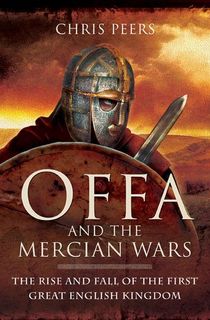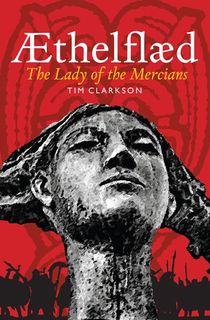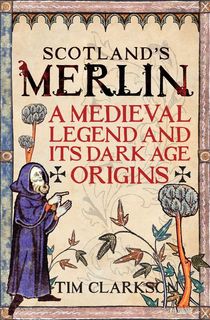The term “Dark Ages” has long been used to refer to the period in Western European history between the fall of the Western Roman Empire in the early fifth century to the beginning of the Renaissance era around 900 years later.
Like so many aspects of this period in history, the origins for the term remain shrouded in mystery. Referring to the literary output of the day, the 14th-century Tuscan scholar Petrach famously bemoaned the “darkness” of his own era in comparison to the cultural heights achieved during classical antiquity. Italian historian Caesar Baronius later used the phrase saeculum obscurum (which literally translates to “the Dark Age”) in his Annales Ecclesiastici to refer specifically to the absence of historical records for the centuries that followed the end of the Roman Empire. Subsequently, the term became more widespread and largely took on a negative connotation, its use implying that this was a barbarous time with little in the way of cultural or scientific advancement.
Only in the modern era have historians properly recognized that this stereotypical view of the so-called “Dark Ages” does not necessarily represent an accurate version of events, and today’s scholars prefer to employ terms such as the “Early Middle Ages” to describe the period (although the term persists in the average person's vocabulary). Extensive modern-day research into the archaeological and textual evidence relating to this era has revealed that, contrary to previously long-held opinions, this was a time of expansion with many exciting cultural and economic developments.
For anyone who is looking to discover more about this formerly neglected period of history, here are eight fascinating books on the subject.

In Search of the Dark Ages
Historian and broadcaster Michael Wood sets out to explore the origins of the English nation in this riveting account of British history from Roman rule through to the Norman invasion in 1066. In Search of the Dark Ages was first published just over four decades ago to coincide with a BBC TV documentary series of the same name, but a new updated and extended 40th anniversary version was released last year to reflect the latest historical and archaeological research. This seminal work highlights Wood’s unrivalled ability to bring the past to life, as he aims to disprove some of the long-held misconceptions relating to this historical period.

Offa and the Mercian Wars
Because of the lack of documentary evidence from the period, books on Offa, one of the most intriguing historical figures from the Dark Ages, have hitherto proved hard to come by. In Offa and the Mercian Wars, Chris Peers successfully frames the story of Offa and the Mercian kingdom within the wider context of events happening elsewhere during the 30-year reign of the first ruler to be known as “King of the English”. The result is “an excellent look at life in Anglo-Saxon times, and at an overlooked but very important ruler” (The NYMAS Review).

King and Emperor: A New Life of Charlemagne
The eighth-century King of the Franks, Charlemagne, was so accomplished in warfare that by the time he died in 814 his empire covered much of mainland Western Europe. Yet the accomplishments of his reign were not confined to mere empire building. In his role as the first Holy Roman Emperor, Charlemagne sparked a cultural and intellectual revival which rivalled that of the later Renaissance era.
In this landmark biography, Janet “Jinty” Nelson has meticulously pieced together the available evidence on Charlemagne’s life to produce “a remarkable, learned text, unlike any other study of Charlemagne in recent years” (Sunday Times). In so doing, she also sheds light on this previously largely ignored period of European history. The New York Review of Books praised Nelson’s work for taking “a robust step towards filling the gap in our historical imagination left by the passing of Rome”.

AEthelflaed
In this fascinating account of life in early 10th-century England, Tim Clarkson tells the remarkable story of Aethelflaed, the eldest daughter of Alfred the Great. Known to history as the Lady of the Mercians, Aethelflaed was betrothed to one of her father’s greatest rivals, Aethelred, to strengthen an alliance between the two rulers. Following Aethelred’s death, she became the ruler of the Mercians in her own right and ably supported her brother, Edward the Elder, in the fight to save England from the Vikings. Through detailed research and a methodical approach to his subject, Clarkson has produced a compelling account of events that will appeal both to newcomers and scholars of the period alike.

Scotland's Merlin
The origins behind the story of Merlin, the famous wizard of Arthurian legend, have fascinated historians ever since he first appeared in the work of the 12th-century chronicler, Geoffrey of Monmouth. In Scotland’s Merlin, Tim Clarkson takes an extensive look at the man behind the myth and some of the real-life historical figures from the Dark Ages to whom he has been linked. In particular, he focuses on the story of Lailoken, a mysterious figure from the sixth century who is said to have roamed the hills and forests of southern Scotland. With typical clarity of thought and painstaking research, Clarkson has produced a book which Undiscovered Scotland described as “cutting through centuries of confusion and complexity in a way that is deeply impressive”.

The Wolf Age: The Vikings, the Anglo-Saxons and the Battle for the North Sea Empire
The award-winning The Wolf Age is the first major book on the Vikings by a Scandinavian author to be published in English, having been a bestseller in Tore Skeie’s native Norway. Ably translated into English by Alison McCullough, Skeie provides a different perspective on the Viking world, offering a far more nuanced approach to the subject than the stereotypical way in which it has often been depicted. He skillfully combines the known history of the period with stories passed down through the epic Norse sagas to produce a fascinating study of the battle for supremacy in Northern Europe during the early 11th century.

River Kings: A New History of the Vikings from Scandinavia to the Silk Roads
Starting with a small bead found in an eighth-century Viking warrior’s grave in England, River Kings provides a fascinating insight into the work of bioarchaeologist, Cat Jarman, who uses forensic techniques to delve deep into Viking culture. This Times Book of the Year traces the movements of the Vikings all the way east to places like Byzantium and Baghdad through the objects they left behind. With particular emphasis on the women in the Viking world, Jarman offers a whole new perspective on the period. In Search of the Dark Ages author Michael Wood commented about Jarman’s work that, “You’ll never see the Viking Age in the same way again”.

Powers and Thrones: A New History of the Middle Ages
Described by the Sunday Times as “simply the best popular history of the Middle Ages there is”, Powers and Thrones provides a comprehensive account of events during the 1,000-year period also known as the Dark Ages. British historian and TV presenter Dan Jones effortlessly achieves the seemingly well-nigh impossible task of weaving together multiple strands of history over a huge timespan. The result is “not only an engrossing read about the distant past, both informative and entertaining, but also a profoundly thought-provoking view of our not-really-so ‘new’ present” (Wall Street Journal).





